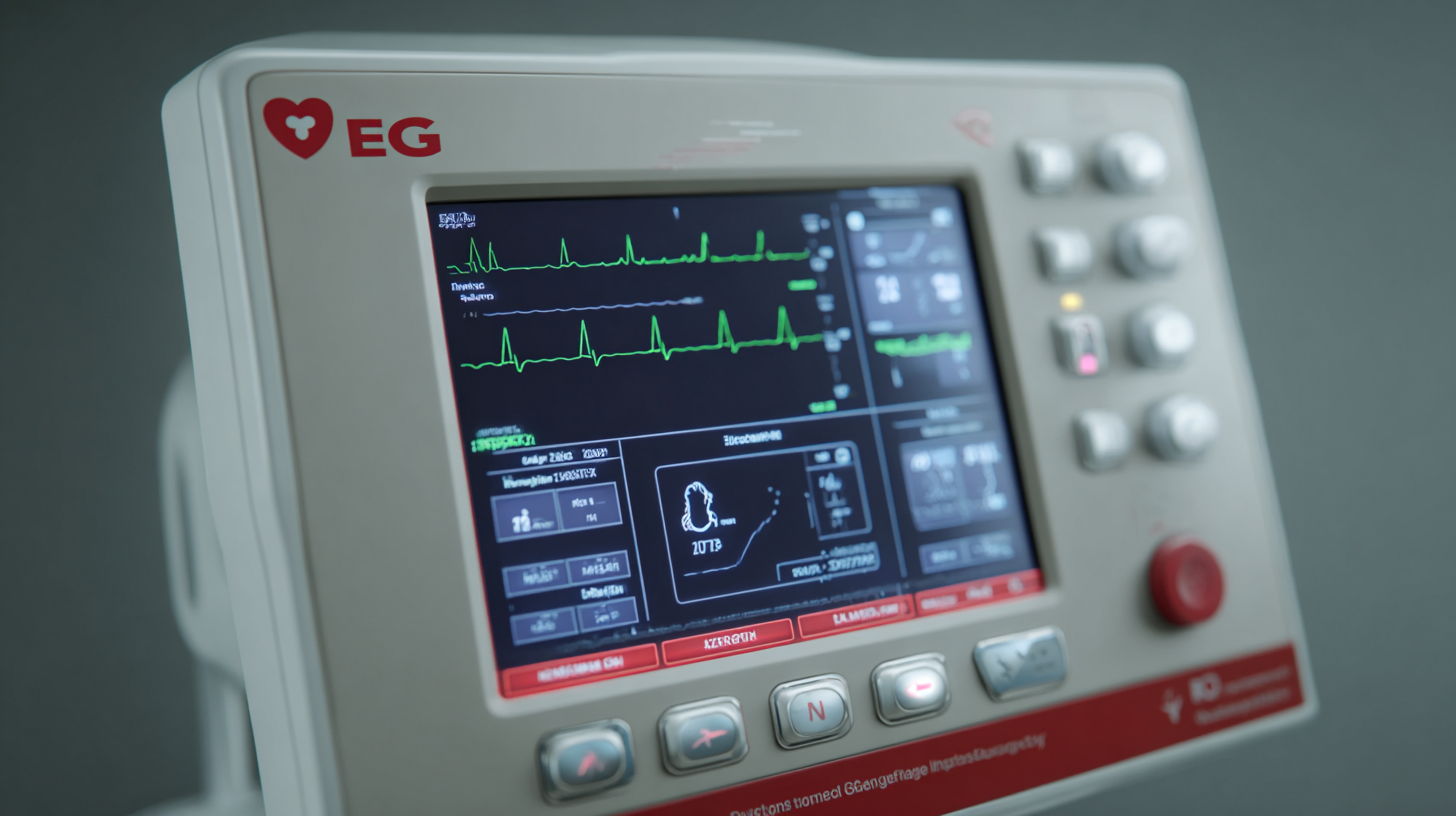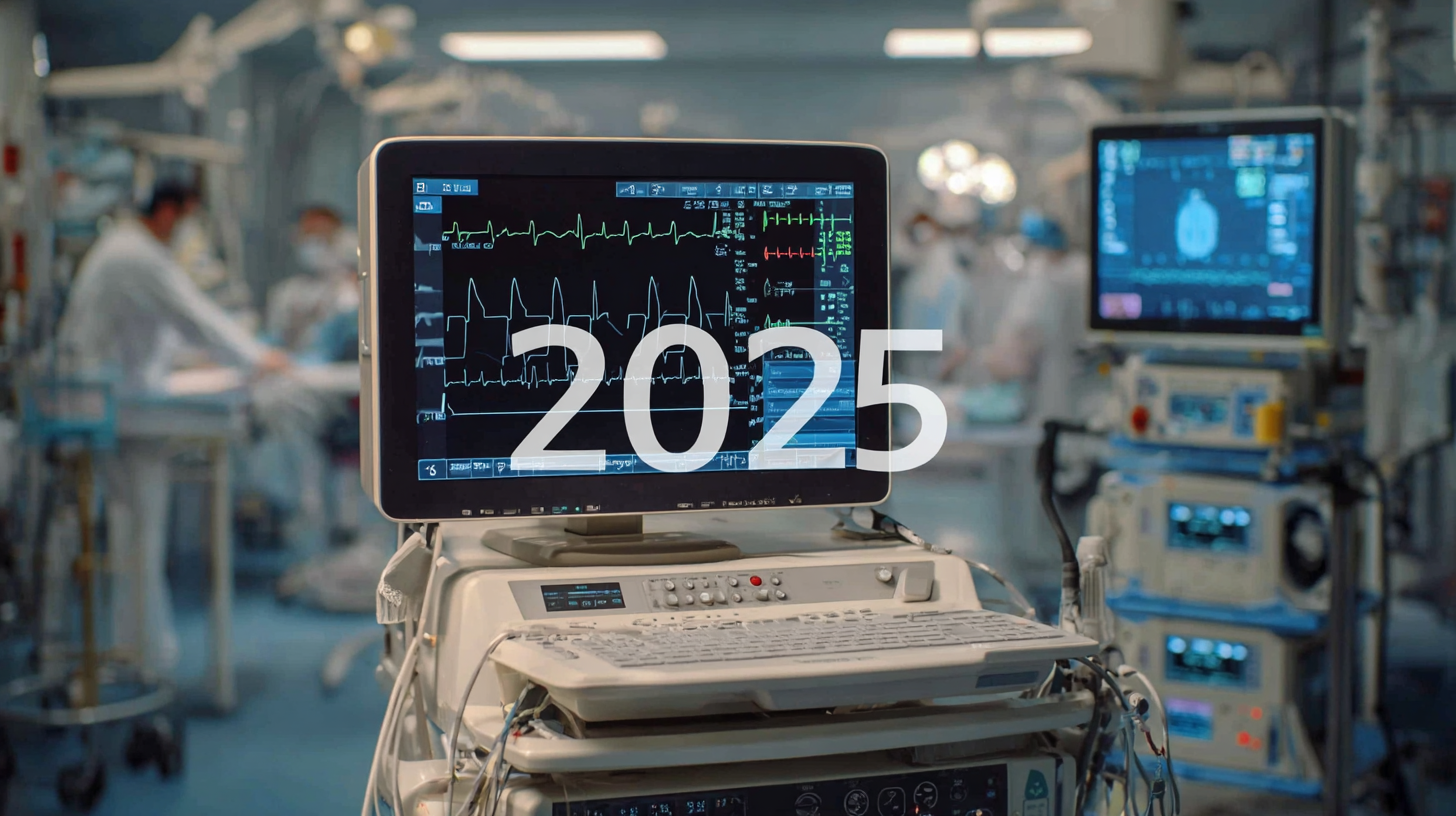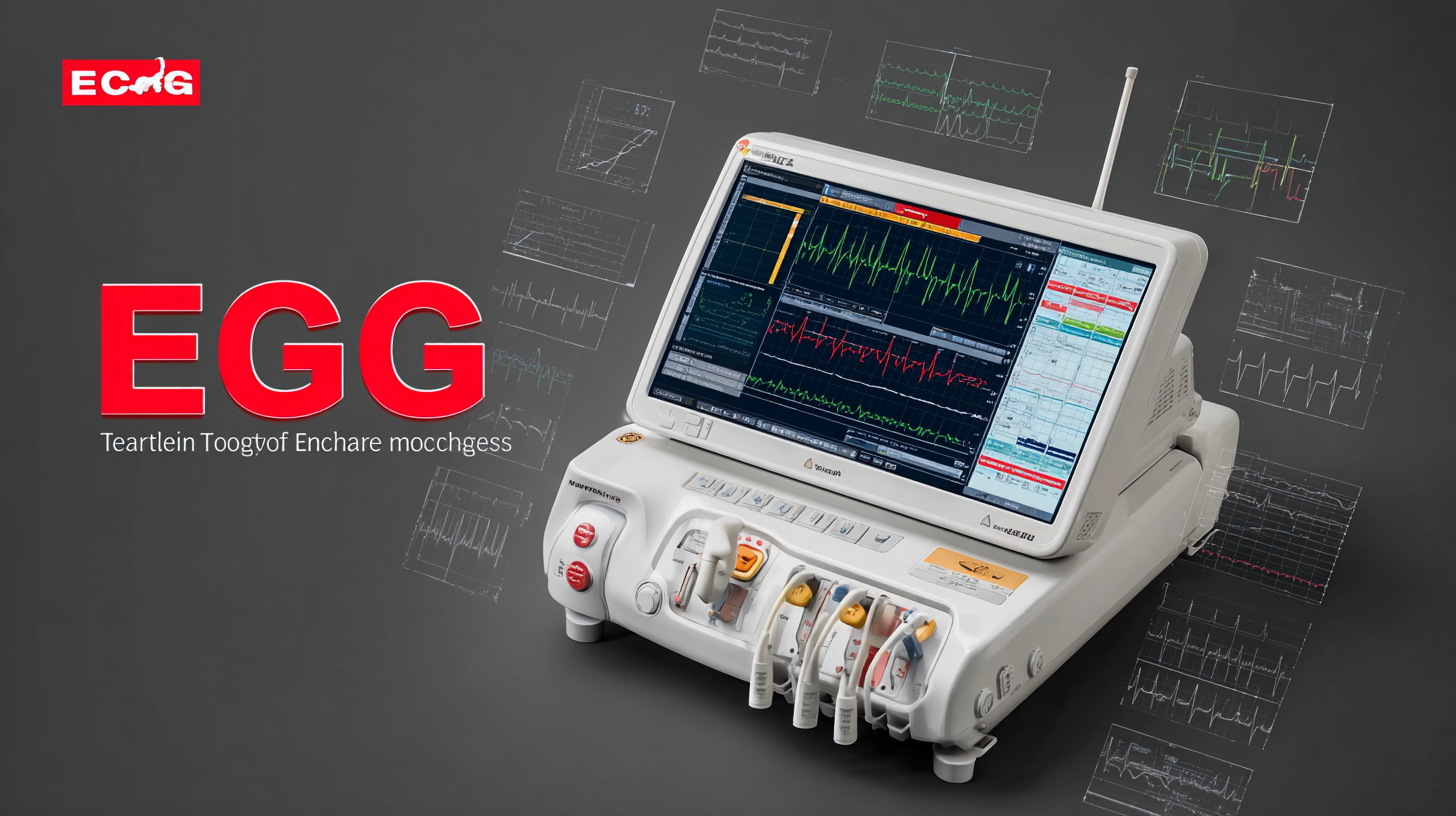Bankim Nagar, Siliguri, West Bengal
- GST NO. : 19BHDPS7640K1ZR
2025 Global Trends in Healthcare Technology with Solutions for Best ECG Machines
In 2025, the global healthcare landscape is poised for significant transformation, driven by advancements in technology and an increasing focus on patient-centric solutions. One area witnessing remarkable innovation is the ECG machine market, which is projected to grow at a compound annual growth rate (CAGR) of 7.1% from 2023 to 2030, according to a recent report by Grand View Research. As countries strive to enhance their healthcare systems, China stands out as a leader in manufacturing high-quality ECG machines, exporting to markets worldwide. With an emphasis on reliability, accuracy, and user-friendly designs, these machines are becoming integral in monitoring and diagnosing cardiovascular conditions, ultimately contributing to improved patient outcomes across the globe. This blog will explore the 2025 global trends in healthcare technology, emphasizing solutions provided by top-tier ECG machines made in China and their impact on international healthcare practices.

Emerging Technologies Shaping the Future of Healthcare in 2025
As we approach 2025, emerging technologies are reshaping the landscape of healthcare, with artificial intelligence (AI) taking center stage. According to Deloitte's latest Tech Trends report, AI is intricately woven into nearly all advancements, driving the priorities of healthcare executives globally towards improved efficiency, productivity, and enhanced patient engagement. These technologies are not just abstract concepts; they are manifested in real-world applications like wearable devices and high-performance computing, promising to revolutionize patient care and monitoring.
In addition to AI, the World Economic Forum highlights a variety of cutting-edge innovations that will address pressing healthcare needs. Extended reality, including virtual reality, is positioned to create immersive training environments for healthcare professionals, while robotics continues to transform surgical procedures and patient interactions. As telehealth expands, technology is playing a crucial role in expanding access to care, making it more sustainable and efficient. The convergence of these trends lays the foundation for a healthcare system that is more responsive, integrated, and focused on the needs of patients in 2025 and beyond.

Key Features to Look for in Next-Generation ECG Machines
The evolution of healthcare technology continues to shape patient care, particularly in the realm of electrocardiography (ECG). As we look towards 2025, next-generation ECG machines are expected to integrate advanced features that enhance diagnostic accuracy and patient monitoring. One key feature to consider is cloud connectivity, which allows for secure, real-time access to patient data. According to a report from MarketsandMarkets, the global ECG market is projected to reach USD 7.7 billion by 2025, driven by increased demand for telemedicine and remote monitoring solutions.
Another essential aspect is artificial intelligence (AI) integration. AI-enabled ECG devices can automatically analyze heart rhythms and identify anomalies, significantly improving the efficacy of early detection. A study published in the Journal of the American College of Cardiology demonstrates that AI can enhance the diagnostic performance of ECG machines by up to 30%, an impressive advancement that underscores the technology's potential.
**Tips:** When evaluating ECG machines, look for devices with user-friendly interfaces and comprehensive reporting features to streamline workflow in clinical settings. Additionally, consider machines that provide customizable alerts and notifications to ensure timely interventions for patients at risk. Investing in models that ensure interoperability with existing healthcare IT systems will maximize the utility of new technology.
2025 Global Trends in Healthcare Technology with Solutions for Best ECG Machines
| Feature | Importance | Technological Trends | Potential Solutions |
|---|---|---|---|
| AI Integration | Enhances diagnostic accuracy | Machine Learning Algorithms | Smart ECG Analysis Software |
| Wearable Technology | Promotes continuous monitoring | Connected Health Devices | Portable ECG Monitors |
| Telemedicine Capabilities | Increases patient access | Remote Monitoring Solutions | ECG Cloud Services |
| User-Friendly Interface | Improves ease of use for clinicians | Touchscreen and Intuitive Design | Customizable ECG Systems |
| Data Security | Protects patient information | Encryption Technologies | Secure Data Transmission Protocols |
Opportunities for Innovation in Healthcare Data Management
In 2025, the landscape of healthcare technology is poised for transformative change, particularly in the realm of healthcare data management. As electronic health records (EHRs) and medical devices become increasingly interconnected, the need for robust data management solutions is more critical than ever. Healthcare providers are seeking innovative ways to streamline data collection, analysis, and sharing, ensuring that patient information is always accessible while maintaining strict compliance with privacy regulations. This evolution presents a golden opportunity for tech innovators to develop cutting-edge solutions that enhance data integrity and interoperability across various platforms.
Moreover, the integration of artificial intelligence and machine learning into healthcare data management systems will revolutionize how providers approach patient care. By harnessing these technologies, healthcare organizations can analyze vast amounts of data to identify trends and predict health outcomes, enabling personalized treatment plans. Such advancements will not only improve patient satisfaction but also optimize operational efficiency within healthcare facilities. As we move forward, the emphasis on secure, efficient, and integrated data management will be paramount in driving improvements in patient care, making it a vital area for investment and innovation in the healthcare sector.
2025 Global Trends in Healthcare Technology
This chart illustrates the projected growth in various healthcare technology domains by 2025, highlighting the increasing importance of ECG machines and healthcare data management solutions.
Addressing Regulatory Challenges in ECG Technology Development
The development of ECG technology faces significant regulatory challenges that can impede innovation in the rapidly evolving healthcare landscape. As the demand for advanced cardiovascular monitoring solutions grows, manufacturers must navigate complex approval processes while ensuring compliance with strict safety standards. These regulatory hurdles not only delay the introduction of new ECG machines but also affect the overall quality of care delivered to patients. A streamlined and transparent regulatory framework could greatly enhance the ability of developers to bring innovative solutions to market, thereby addressing urgent healthcare needs.
Moreover, collaboration between technology developers and regulatory bodies is essential for fostering an environment conducive to innovation. By engaging in proactive dialogue, stakeholders can establish guidelines that facilitate the integration of cutting-edge features in ECG devices while maintaining safety and efficacy. Additionally, adopting adaptive regulatory pathways could allow for more agile responses to technological advancements. This collaborative approach not only aids in overcoming regulatory challenges but also ultimately benefits patients through the timely availability of improved healthcare technologies.
Integrating AI and Machine Learning in Cardiovascular Health Solutions
In the rapidly evolving landscape of cardiovascular care, the integration of artificial intelligence (AI) and machine learning (ML) is revolutionizing how we diagnose and treat heart conditions. According to a report by Grand View Research, the global AI in healthcare market is anticipated to reach USD 45.2 billion by 2026, with a significant portion dedicated to applications in ECG interpretation and real-time monitoring of cardiac health. By leveraging AI algorithms, healthcare providers can analyze vast amounts of ECG data more accurately and efficiently, allowing for earlier detection of arrhythmias and other cardiac abnormalities.

Machine learning techniques are not only enhancing the accuracy of ECG machines but are also improving patient engagement. A study published in the Journal of American College of Cardiology found that AI-assisted ECGs could reduce false positives by up to 80%, significantly alleviating stress for patients. Additionally, customizable ML models can adapt to individual patient data, tailoring cardiovascular health solutions to meet specific needs. This dynamic adaptability empowers clinicians to provide personalized treatment plans and improve patient outcomes, paving the way for a more proactive approach to cardiovascular health management.

